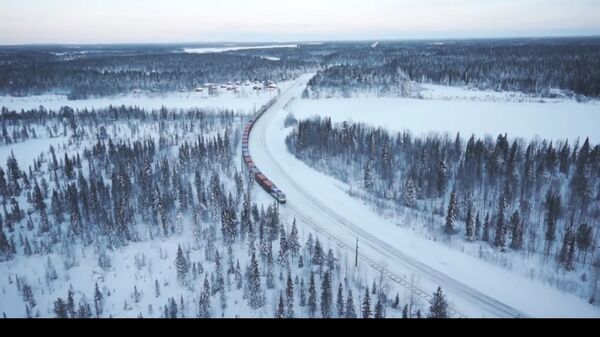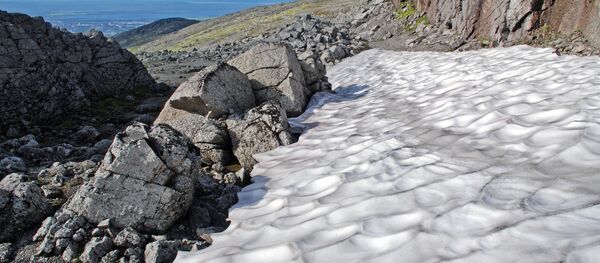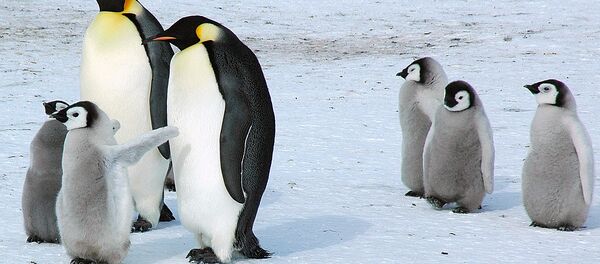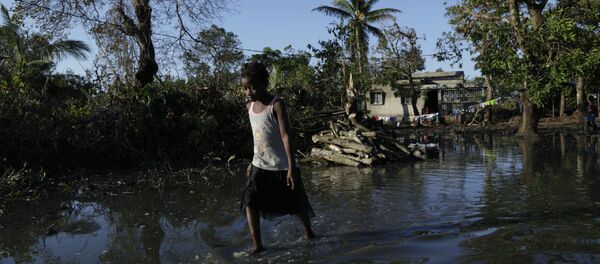Mr Vauraste also told Sputnik about the Arctic Economic Council's projects and bilateral economic cooperation between Finland and Russia.
Sputnik: You took part in a session yesterday about the World's Oceans; how did it go and what are your impressions?
Tero Vauraste: I think it was a good session; we had different types of opinions. I think that maybe the most important notion is that this is more or less the first time when we have the shipbuilding industry having discussions about how to take care of the oceans.
That's a new view. We had several participants from international shipbuilding dockyards, and the idea of shipbuilders taking care of how you should maintain nature, how you should protect the oceans is something new; so I think that was a good discussion.
READ MORE: Explorer Finds ‘Obvious Human Contamination’ in Deepest Ever Ocean Dive (PHOTOS)
Sputnik: What are your impressions about the importance of the northern routes and the transportation within the framework of the Arctic Council? How important is this area?
Tero Vauraste: If you have a look into the three main routes, first of all, the Northern Sea Route, the Northwest Passage, and actually somewhere in the future the Polar Route as well. The first notion is that the Northern Sea Route is the most developed because there is already some infrastructure existing – there are search and rescue stations, there are icebreaker services available, and there is significant industry already existing.
However, if you think of how big the share is regarding international transportation, it's still a marginal amount. But we have witnessed that there are, for instance, Asian players like COSCO, who has been active in their test voyages and has already introduced their plan to use the route even more.
And if the security situation, for instance, in the Suez Canal rapidly changes, that might be a page turner as well. For the Vladivostok area, for the Russian Far East area, the Northern Sea Route is having even more significance as well. And so, the new approach, the Russian approach, which is in a way combining the Arctic and the Russian Far East is also visible in the tactics and strategies of developing that area.
The Northwest Passage in the North American Arctic is somewhat different. There is very limited infrastructure, no deepwater port; there will be a new port in Iqaluit but that’s not very high up north meaning that the significance in commercial terms for that route isn’t up to speed yet.
And for the Polar Route, it’s still going to take decades that it's going to be anything significant. But actually, I have to say that I hope that we are able to take care of the Paris Climate target that the Polar Route will never exist.
READ MORE: Speed Demon: Arctic Glacier Goes from 60 Feet Per Year to 60 Feet Per Day
Sputnik: There is a process of handover between the Finnish businesses and Iceland right now when it comes to the Arctic Council. Were you able to reach the goals for your Finnish colleagues during your term and what’s going to happen now?
Tero Vauraste: In terms of the Arctic Economic Council, we have the five main overarching themes which were set in our strategy already when we established the Council five years ago. Those were, are, and will be the basis of our work.
Secondly, we had three "flavours" or notions for the Finnish businesses chairmanship which were Interconnected Arctic, Competent Arctic, and the Safe Arctic; and I'm quite happy with the results. For instance, we can take an example of the connectivity idea.
I have to say that that's one example of the connectivity thinking; and I think it's witnessing that, for instance, within this area, it has been successful.
Secondly, if you think of the main overarching theme of market access and freedom of trade, we have not been successful but that has nothing to do with the Arctic Economic Council because the international geopolitical developments that have taken place with increased protectionism, increased tariffs, sanctions and so forth have basically nothing to do with the Arctic issues or the Arctic Economic Council.
Unfortunately, they have implications for the Arctic whereas the small and medium enterprises which are providing more than 50 percent of the jobs in the Arctic are of high importance; and they are suffering from the protectionism because you could say that the smaller the company, the more it needs open economies.
READ MORE: New US Policy in Arctic Aimed at Turning Region Into Battlefield - Moscow
Sputnik: Speaking of protectionism measures, maybe some of them are politically motivated, but in general, do you think that there is gravitation towards better ties with Russia in Europe and in Finland in particular?
Tero Vauraste: I think that when the sanctions were introduced a couple of years ago, first of all, Finland was the most hit Western country because the trade between Finland and Russia reduced by 50 percent in a year. It's been picking up, and we’re actually quite close to the levels where we were before the sanctions.
And these are important countries also for the Arctic because if you think of what are the most open economies in Europe, Germany is number one; Germany is also among the top three trade partners for each of the Arctic countries, which means that because of the interconnectedness and the financial value chains Germany then has an implication also for the Arctic economies.
Finland in particular as a trade partner for Russia, if you think from the Russian perspective, we're quite small; but then on the other hand, if you think of the significance of the Russian trade to Finland, it's important; it's been among the top five throughout the past 20-30 years, and there have been many different phases in that.
READ MORE: 'The Science Is Clear': Canada Warming Up at Twice the Global Rate
If you go back into the trade between the former Soviet Union and Finland, it was based on this bilateral trade thinking; and when the Soviet Union collapsed, this disappeared overnight, and instead we got the Nokia. But Nokia is already something different, they are not a big cellphone provider anymore, it’s actually now based on different types of new industries.
And there I'd highlight one important factor which is the circulating economies; and this has been an area of discussion also at this conference here when we had the Finland-Russia dialogue yesterday morning. The circulating economies, the waste handling and those technologies are of importance; and there are good technologies that Finland can export to Russia.
Views and opinions, expressed in the article are those of Tero Vauraste and do not necessarily reflect those of Sputnik.




